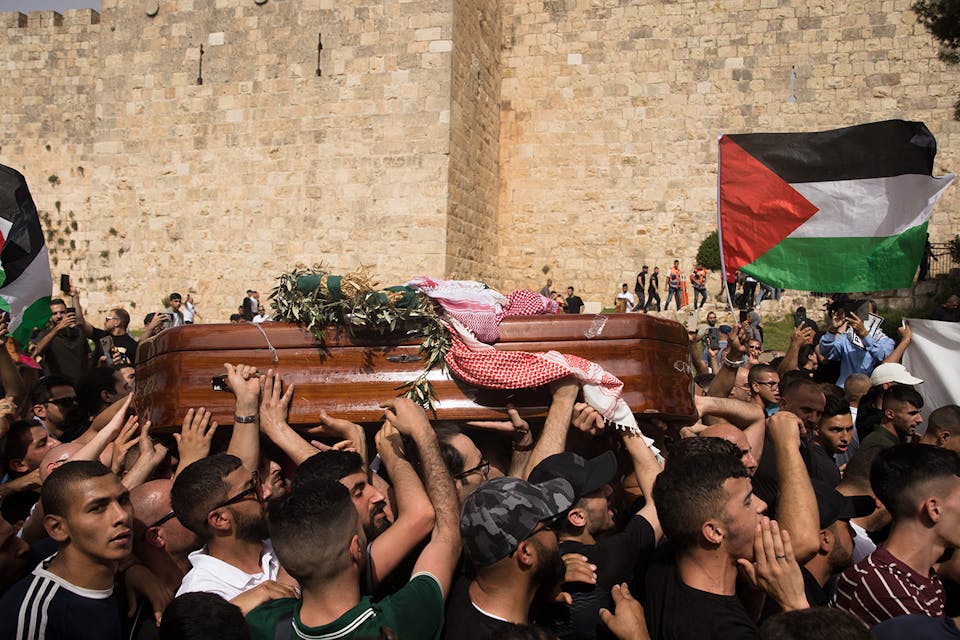
July 25, 2022
What Reactions to the Death of Shireen Abu Akleh Reveal
The belief that Israel has a policy of assassinating reporters has, explicitly or tacitly, now been accepted by much of the liberal world.
The death of war correspondents rarely makes headlines, but that of Shireen Abu Akleh has been front-page news for weeks. A well-known Palestinian-American reporter for Al Jazeera TV, the fifty-one-year-old Abu Akleh was tragically shot during a battle between Palestinians and Israeli troops in the West Bank city of Jenin on May 11. When, two months earlier, the Fox News photographer Pierre Zakrzewska and Ukrainian cameraman Oleksandra Kuvshynova were struck down by a Russian barrage in Kyiv, the story lasted a day. But even that coverage exceeded the attention given to almost all the 2,658 journalists, eleven of them from Al Jazeera, killed in combat since 1990. The reason is simple: taking risks is part of a war correspondent’s job. “If your pictures aren’t good enough,” the famed war photographer Robert Capa wrote, “you aren’t close enough.”
By contrast, the shooting of Abu Akleh has become the focus of prolonged press, governmental, and UN action. The White House, the U.S. Congress, and virtually every major American news outlet have repeatedly addressed it. How can the intense interest in one particular journalist be explained when the killing of so many of her colleagues was scarcely noted? What made her death so different?
The May 11 battle took place following the murder of nineteen Israelis by Palestinian terrorists, many of whom belonged to the Islamic Jihad branch in Jenin. Having lost security control of the city, the Palestinian Authority willingly stepped back to allow for the entry of Israeli forces who were met with overwhelming small-arms fire and explosive devices. While covering the clash, Shireen Abu Akleh died instantly after being struck in the head by a bullet. Another Palestinian journalist, Ali Samoudi, was wounded. Although Israel at first blamed the terrorists, it later admitted the possibility that one of its troops might have accidentally shot the reporters. The IDF immediately mounted an internal investigation headed by a senior intelligence and technical officer. The Palestinian Authority, on the other hand, refused to release the bullet—5.56 caliber, the type used by the IDF but also by many Palestinian terrorists—that purportedly killed Abu Akleh. The Palestinian prime minister Mohammad Shtayyeh explained, “Those who fabricated the history of a people,” referring to the Jews, whose history he believes is imaginary, “can also fabricate a narrative.”